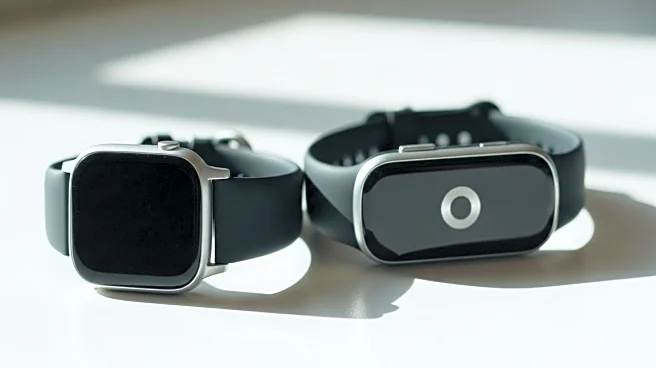What's Happening?
Health savings accounts (HSAs) and flexible savings accounts (FSAs) are increasingly being used to purchase modern wellness technology products, according to Chris Byrd, senior vice president at WEX. These accounts, traditionally used for medical expenses, are now being leveraged to cover a range of wellness tech items, provided they meet eligibility criteria. Products such as massage guns, smart rings like the Oura Ring, and wearable devices like the Whoop 5.0 are among those that can be purchased using HSA or FSA funds. However, eligibility often requires a letter of medical necessity from a healthcare provider, especially for items used for general health or cosmetic purposes. The flexibility of these accounts is transforming how employees view their benefits, as they are no longer just for emergencies.
Why It's Important?
The ability to use HSA and FSA funds for wellness technology reflects a shift in how individuals manage their health and wellness. This trend could lead to increased adoption of health tech products, potentially improving personal health management and preventive care. It also highlights the evolving nature of employee benefits, offering more comprehensive options for health-related expenses. As more people become aware of these possibilities, it could drive demand for innovative health tech solutions, benefiting companies in the wellness technology sector. Additionally, the ability to invest HSA funds in mutual or index funds provides a financial growth opportunity, enhancing the long-term value of these accounts.
What's Next?
As awareness grows, more individuals may explore using their HSA and FSA funds for wellness technology, prompting companies to expand their offerings to meet this demand. Healthcare providers might see an increase in requests for letters of medical necessity, as consumers seek eligibility for various products. Employers could also consider enhancing their benefits packages to include more flexible spending options, aligning with the trend of personalized health management. The market for wellness tech products may experience growth, driven by consumer interest in leveraging these accounts for health-related purchases.
Beyond the Headlines
The use of HSAs and FSAs for wellness technology raises questions about the definition of medical necessity and the criteria for eligibility. As these accounts become more integrated into personal health management, there may be discussions around the ethical implications of what constitutes a medical need versus general wellness. This could lead to policy changes or clarifications in the guidelines governing these accounts, impacting how they are used in the future.










